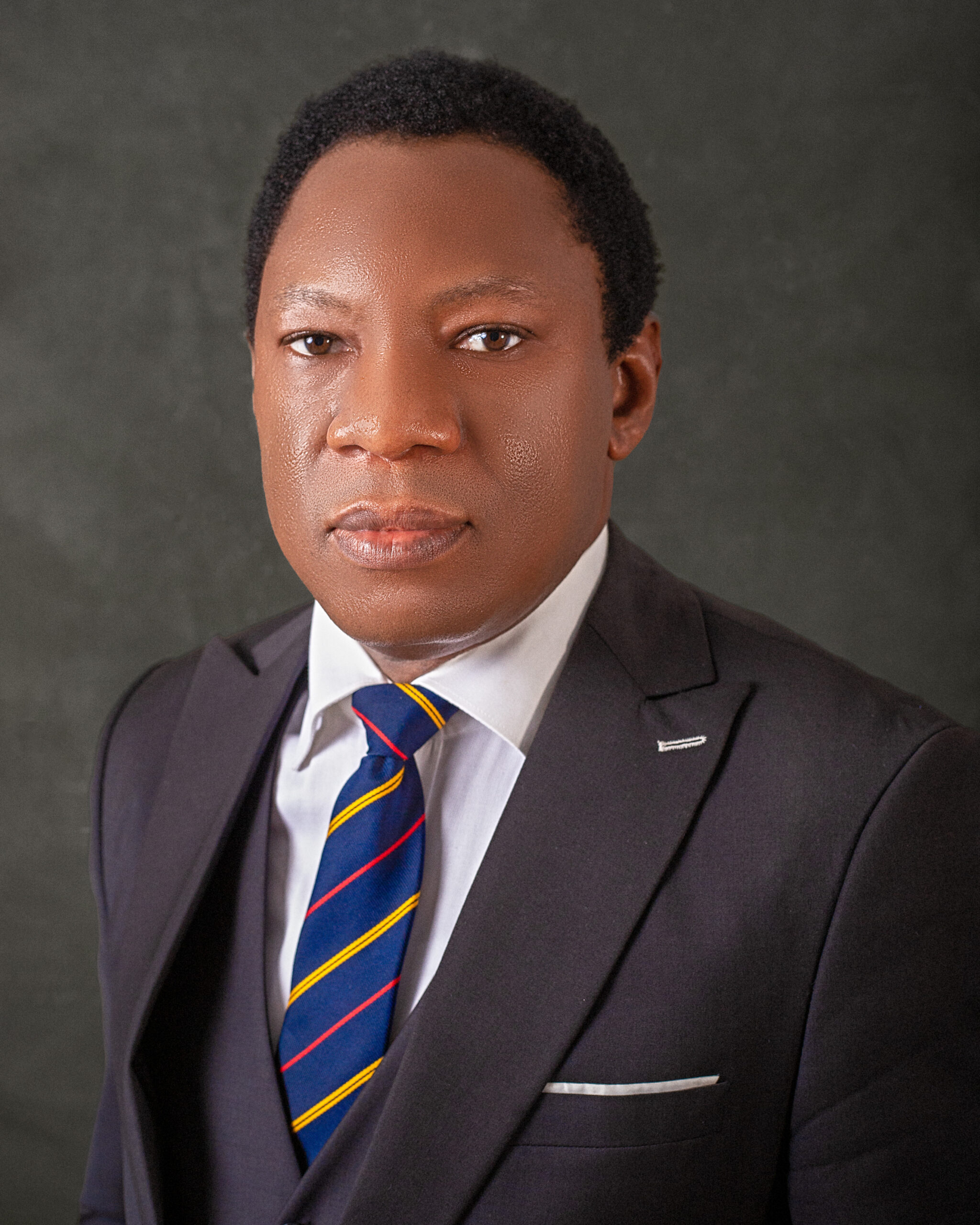Introduction
The issue of whether the victims of an oil spill must bring their claim for compensation before the Nigerian courts under the regime provided by the Oil Pipelines Act continues to generate debate within the Nigerian legal community. This debate is not altogether surprising for several reasons, some of which will be explained in this article.
On the one hand, as claims of this nature have been litigated in Nigerian courts for several decades, one would expect that the legal principles and approaches that the courts ought to adopt in deciding such claims should be predictable and straightforward by now. On the other hand, even after six years since the Court of Appeal’s decision in NAOC v Ogbu (‘Ogbu’) where Justice Danjuma (JCA) gave a leading judgment that presents a golden opportunity to develop the country’s case law in this area towards a more coherent law, some recent decisions indicate that the law is still far from settled. To its credit, the Federal High Court, the court of first instance for oil spill claims, has in the aftermath of the decision in Ogbu, issued several decisions which suggest that that court is determined to place its case law in this area on a secure, settled and consistent footing. But a number of questions remain, clearly.
This article does not, by any means, aim to address all the questions. Rather, the spotlight is on the recent decision of the Court of Appeal in SPDC v Saakpa & Anor (‘Saakpa’), to highlight that the case law in this area is not yet coherent and predictable, and also show that the era of inconsistent decisions by the Court of Appeal is far from over. More specifically, an attempt will be made in the article to demonstrate that the reasoning of the Court of Appeal appears faulty and falls short of its earlier reasoning and decision in Ogbu and the well-established English case law, part of which influenced Justice Akenhead’s judgment in Bodo Community & Ors v The Shell Petroleum Development Company of Nigeria Limited (‘Bodo Community’). The real issue, it will be argued, is not just that the decision in Saakpa marks a return to orthodoxy, but whether the Federal High Court judges will be prepared to abandon the impressive jurisprudence they have developed in this area in recent years and embrace the enforced orthodoxy that Saakpa re-introduces.
Background
The litigation in Saakpa arose from an oil spill that occurred in a manifold along a certain Alesa-Eleme Bonny Trunk line (crude oil pipeline) operated by The Shell Petroleum Development Company of Nigeria Limited (‘SPDC’). Elder Bariborn Saakpa and Saturday Giadom (‘the Respondents’) suing in a representative capacity, filed a claim against SPDC for Ten Billion Naira (N10 Billion) damages under the common law remedies of strict liability and negligence.
At first instance, the Federal High Court (Chukwu J.) heard the claim and entered judgment in the Respondents’ favour for the sum of N5 billion. Miffed by the judgment, SPDC (‘the Appellant’) appealed to the Court of Appeal. In its amended brief, the Appellant argued, among other things, that the Respondents’ claim was incompetent ab initio having been brought under common law remedies and not under the exclusive compensation regime provided by the Oil Pipelines Act (‘OPA’). The Appellant relied on the Court of Appeal’s earlier decision in Ogbu and invited the Court to follow its reasoning in that judgment.
The Court of Appeal disagreed. In its judgment, which dealt with a variety of other issues, the Court reasoned that several judicial decisions of the Court and the Supreme Court exist where both courts consistently endorsed and granted claims for damages arising from crude oil pollution based on negligence, res ipsa loquitor and the principle of strict liability as laid down in Rylands v Fletcher without insisting that such claims must be brought under the Oil Pipelines Act.
Comments
This decision is faulty in many respects, some of which are even obvious at first glance. To begin with, Nigeria law is well settled that where a common law right has been assimilated by statute, it is the statutory provision that must be resorted to when bringing an action concerning that right and not the common law. In other words, the common law right ceases to exist and a prospective claimant is precluded from resorting to the common law where the right in issue has been enacted into a statutory provision. This much was pronounced by the Court of Appeal itself in U.T.B v Koleosho where it held that “[i]t has become trite law that statutory provisions supersede common law or customary law. Where therefore a statute has provided for certain actions, common law provisions relating to such actions cease to apply.”
As earlier mentioned, in Saakpa, the Respondents approached the court seeking damages for injuries suffered from an oil spill related to an oil pipeline leakage. For this kind of action, although originally available at common law (i.e. primarily under the torts of negligence, nuisance and the strict liability rule in Rylands v Fletcher), the common law has been superseded by statute – the OPA, in respect of land injuriously affected and for damage caused by negligence on the protection, maintenance and operation of licensed oil pipelines or caused by a breakage/leakage of such pipelines. To be sure, section 11 (5) of the OPA provides as follows:
“The holder of a licence shall pay compensation –
(a) to any person whose land or interest in land (whether or not it is land in respect of which the licence has been granted) is injuriously affected by the exercise of the right conferred by the licence, for any such injurious affection not otherwise made good; and
(b) to any person suffering damage by reason of any neglect on the part of the holder or his agents, servants or workmen to protect, maintain or repair any work, structure or thing executed under the licence, for any such damage not otherwise made good; and
(c) to any person suffering damage (other than on account of his default or on account of the malicious act of a third person) as a consequence of any breakage of or leakage from the pipeline or an ancillary installation, for any such damage not otherwise made good,
and if the amount of such compensation is not agreed between any such person and the holder, it shall be fixed by a court in accordance with Part IV of this Act.“
Interestingly, in Ogbu, the Court of Appeal interpreted the above provisions to the effect that the OPA excludes common law rights which hitherto applied and provides an exclusive compensation regime which must be strictly followed by a person seeking to pursue a claim for compensation in respect of an oil spill from an oil pipeline or any oil facility operated by oil pipelines licence holders in Nigeria. The implication, therefore, is that the Court of Appeal completely missed the point when in Saakpa it turned around from the right path it had taken in Ogbu and decided that the Respondents’ claim was properly founded on common law remedies.
But that is not all. It is an elementary rule of the Nigerian justice system that a decided case furnishes the basis for the determination of a later case only if the facts or issues in the subsequent case are similar to those in the earlier case. Thus, a court would not be bound to follow earlier decisions cited before it which were not informed by similar facts or issues in the subsequent case. In Saakpa, to arrive at the conclusion that several decisions exist where oil spill claims founded on common law rights have been allowed by both the Court of Appeal and the Supreme Court without insisting that those claims ought to have been brought pursuant to the OPA, the Court of Appeal referred to the following cases: SPDC (Nig.) Ltd. v Edamkue & Ors (2009) LPELR-3048 SC, 1 @ 53; Shell Petroleum Development Company of Nigeria Ltd. v Isaiah & Ors. (2001) LPELR-3205 (SC) 1 @ 13; Christian C. Nkwonka v Nigerian Gas Company Ltd. & Ors (2010) LPELR-3979 (CA) 1 @ 11-15; Emejuru v Abraham (2008) 3 NWLR (Pt. 1075) 471; SPDC v Mr John Nysomnazu Okeh & 2 Ors (2018) 17 NWLR (1647) (CA) 420 @ 439, para. A-B. In essence, the decisions in these cases influenced the Court’s reasoning and final judgment on the issue. However, the relevant point that the Court of Appeal again missed is that in none of these cases was the issue of whether the claimants should have pursued their claims under the OPA raised or decided. It follows, therefore, that the decisions in those cases could not have served as precedent that the Court should have followed in determining the issues argued in Saakpa. It is surprising that the Court of Appeal would miss this point.
What is perhaps more telling, as the next paragraphs will make clear, is that the court’s decision in Saakpa appears to have been reached per incuriam.As is well known, a court’s decision is said to have been given per incuriam if the decision was given in ignorance or forgetfulness of an earlier law (case law or statutory provision) which is binding on that court. Before going further, it is worth establishing at this point that the Court of Appeal is bound by its previous decisions; it can only depart from its previous decisions by distinguishing them from the case at hand where the need arises but does not have the jurisdiction to reverse them willy-nilly.
That said, in Ogbu, the Court of Appeal (same Division) decided a few years earlier that the OPA has taken away the right(s) of action in common law and replaced them with the compensation regime provided by the Act. The parties in Saakpa cited and made heavy arguments on the Ogbu decision in their respective briefs while addressing the issue of whether the Respondents’ claim was competent having not been brought under the OPA regime. In resolving the issue, the court, surprisingly, did not make any reference to Ogbu. Not even an attempt was made to distinguish the facts and issues in both cases or state why the court was departing from its position in Ogbu. In these circumstances, if the law remains that a court decision is given per incuriam where the court fails to take into consideration its previous decision which is binding on it, it is safe to say that Saakpa was reached per incuriam and ought not to constitute a precedent for deciding future cases on the issue under consideration.
Where does Saakpa leave us?
Before concluding, it may be useful to consider where the Saakpa decision leaves the rule of law in Nigeria. On the surface, the decision serves as a loud reminder that the days of conflicting decisions by the Court of Appeal are not yet behind us. Having made such an impressive leap in Ogbu from the old order, one would have thought that Saakpa was an opportunity for the court to consolidate its development of this jurisprudence, clarify some of the grey areas in Ogbu and place the developing case law in this area of law on a clearer and more predictable footing. Unfortunately, this did not happen. What one finds instead is a return to the old order.
But even worse is that Saakpa has the potential to erode the gains that have been made since Ogbu. Notably, the majority of the Federal High Court judges appear to have embraced and assimilated the reasoning in Ogbu over the last seven years.[12] With the conundrum that Saakpa now presents, these judges would be in a dilemma whether to ignore the reasoning in Ogbu which informed their earlier decisions when dealing with future cases. After all, Nigerian law obligates lower Court judges to follow the later in time when faced with conflicting decisions of a superior court, even when the lower court believes that the later decision was given per incuriam.
Conclusion
The Court of Appeal’s judgment in Saakpa leaves much to be desired. The Court had a golden opportunity to reinforce its earlier decision in Ogbu on the issue of the exclusivity of the compensation regime provided by the OPA regarding oil spill claims arising from oil facilities (oil pipelines and ancillary facilities) but did the opposite. In the overall scheme of things, the decision does not bode well for the rule of law in Nigeria where consistency and certainty are expected.
As there is no precedent of the Supreme Court on this issue yet, Saakpa leaves the law, judges (mostly those of the Federal High Court) and the rest of the profession in a state of flux. If it is any consolation, both Ogbu and Saakpa are currently under appeal before the Supreme Court. It is hoped that the Supreme Court will determine the appeals expeditiously so that the uncertainty that Saakpa has thrown up does not linger for too long. At the same time, if the principles established by the Supreme Court in Patkun Industries Ltd v Niger Shoes Manufacturing Co. Ltd and Harka Air Services (Nig.) Ltd v Keazor are any indication, it suffices to say that Saakpa is not likely to stand the test of time.
Note: This article does not constitute a legal advice. For proper legal advice or inquiries on the issues raised in this article or general enquiries relating to Oil and Gas Litigation in Nigeria, please contact Aret & Bret LLP at [email protected]. You can also reach out to the author:
[1] Nigerian Agip Oil Company Limited v Onyemachi Ogbu [2019] 35 WRN 132 (hereafter referred to as Ogbu).
[2] SPDC v Saakpa & Anor (2023) LPELR-61203 (CA)
[3] The Bodo Community & Others v The Shell Petroleum Development Company of Nigeria Limited [2014] EWHC 1973 (TCC).
[4] Patkun Industries Ltd v Niger Shoes Manufacturing Co. Ltd (1988) 8 NWLR (Pt. 93) 138 @152-153; see also Harka Air Services (Nig.) Ltd v Keazor (2011) LPELR-1353 (SC) p. 14
[5] U.T.B. v Koleoso (2006) 18 NWLR (Pt. 1010) 1 @ 15, paras. C-E
[6] See Bodo Community (n 3) pp. 63 – 64
[7] See Ogbu (n 2) p. 165 – 166
[8] Igbadoo & Anor v Keystone Bank Ltd (2021) LCN/14943 (CA).
[9] Makun v FUT Minna (2011) 18 NWLR (Pt. 1278) 190 @ 225 -226, paras. E-C
[10] Subject only to three important exceptions set out in the old case of Kobia Osumanu v Kofi Amadu & 2 Ors (1949) 12 WACA 437.
[11] Madike v IGP (1992) 3 NWLR (Pt. 227) 70 @ 97, para. E; see also Ojugbele v Lamidi (1999) 10 NWLR (Pt. 621) 167 @ 172, para. H
[12] For evidence, please see the following: (i) judgment delivered on 17 January 2022 by Justice E. Obile in Suit No. FHC/WR/CS/126/2013: Chief Ambrose Olughor & Anor v The Shell Petroleum Dev. Co. of Nig. Ltd.; (ii) ruling delivered on 15 January 2021 by Justice J.E. Inyang (now JCA) in Suit No. FHC/YNG/CS/16/2013: Izonbeodei & Ors v The Shell Petroleum Dev. Co. of Nig. Ltd.; (iii) judgment delivered on 17 November 2020 by Justice A.T. Mohammed in Suit No. FHC/PH/CS/73/2017: Mr. Felix Uba & Ors. v NAOC; (iv) judgment delivered on 10 January 2019 by Justice U.N. Agomoh in Suit No -FHC/PH/CS/1695/2009: Ezikiwei Orugbani & Ors v NAOC, (v) ruling delivered on 17 June 2019 in Suit No. FHC/PH/CS/129/2013: Teere & Ors v The Shell Petroleum Dev. Co. of Nig. Ltd; (vi) ruling delivered by Justice E. Obile on 31 October 2019 in Suit No. FHC/PH/CS/135/2012: Chief Court Nabira Awanem & Ors v The Shell Petroleum Dev. Co. of Nig. Ltd; (vii) judgment delivered on 8 November 2018 by Justice I.M Sani in Suit No – FHC/PH/CS/974/98: Blessing Samuel & Ors v SPDC; (viii) judgment delivered 9 May 2018 by Justice I. Watila (of blessed memory) in Suit No- FHC/PH/CS/195/2014: Gramac Farming & Investment Company (Nig.) Ltd v Niger Delta Petroleum Resources Limited.
[13] See Mkpedem v Udo (2000) 9 NWLR (Pt. 673) 631 @ 644 -645, paras. H-B.
[14] See (n 4)
[15] See (n 4)
DAFE UGBETA
Partner, Aret & BRET LLP




